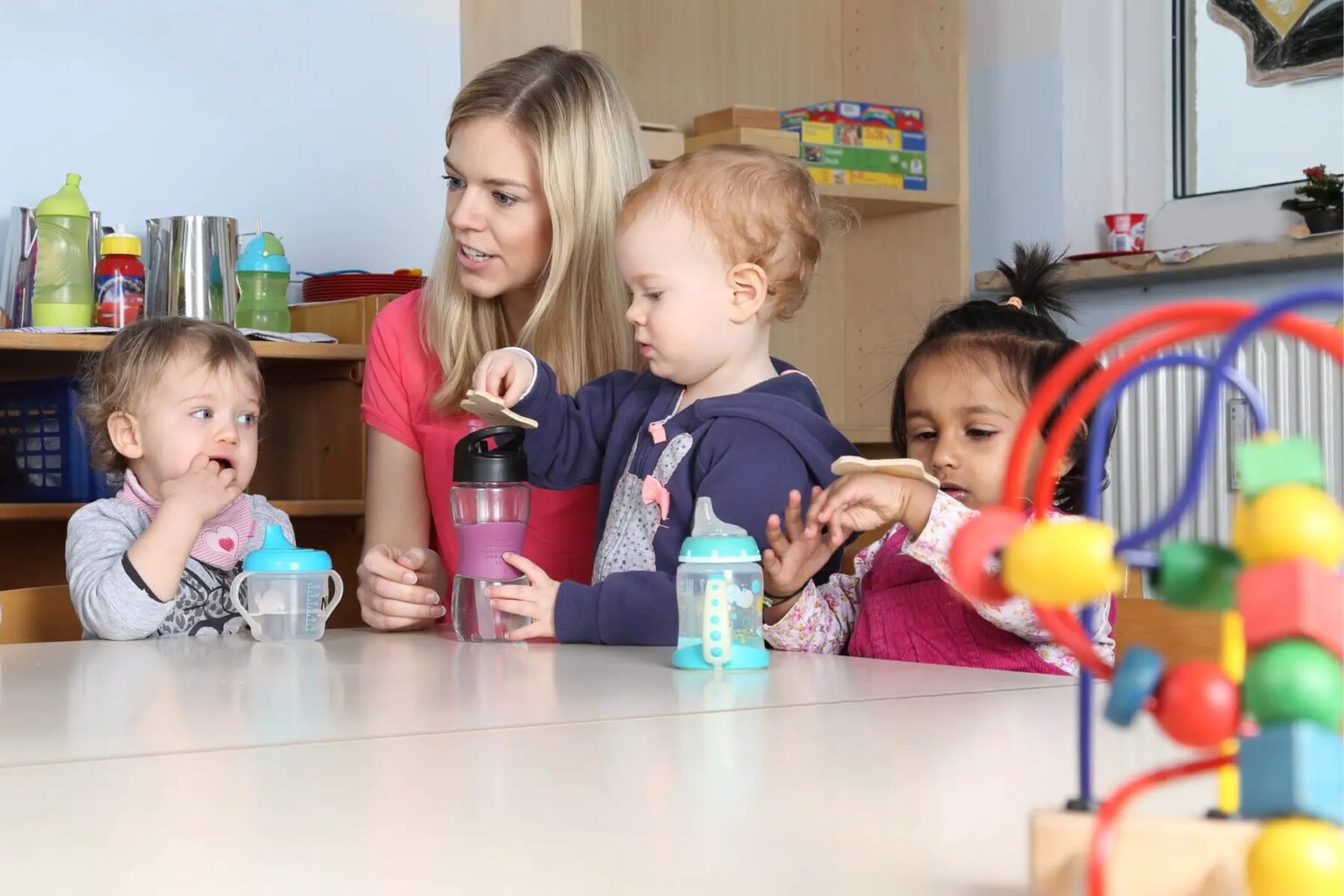Raising children in a culture, country, and language other than your own brings extra challenges—and also of course advantages. Dutch daycare in the early years can be invaluable in preparing children to start school. As a working parent, childcare in the Netherlands is a necessity. And as a stay-at-home-parent, your child’s integration and socialization are equally important – but so are your own.
This guide explains the advantages of Dutch daycare on your child’s development. It especially focuses on their language-learning skills.
ABN AMRO
Need a Dutch bank account for your child? With ABN AMRO, your child has access to an account which you can oversee with debit card limits and payment alerts. Services are available in Dutch and English both online and in-branch. So, whatever your child’s financial needs, ABN AMRO can help.
Dutch daycare: the perfect transition to Dutch school
As children in the Netherlands begin primary school immediately after their fourth birthday, there is not a lot of time to focus on the language and social development. Enrolling your child in Dutch pre-school also makes the transition smoother, for the child and parent.
Childcare in the Netherlands is popular, with the Dutch topping EU tables in terms of the percentage of children accessing childcare. Dutch daycare centers (kinderdagverblijven) offer parents professional care and learning for children aged 0-4 years. These give your child several advantages, developmentally, socially, and linguistically.
“Children develop very rapidly,” says Evelien van Holten, communication adviser at Partou daycare. “Everything is about discovering the world. In fact, they’re encouraged if their personality and talents are seen in every situation. That helps children to develop as smoothly as possible as well as prepare them for global adventures.”
Social integration in Dutch daycare
Expat life is both exciting and complicated. The stakes get higher when you have children in your new home. Parenthood gives an expat the challenge to break away from the purely expat realm, whether you intend to raise your children as locals rather than second- or third-culture kids or as international citizens. Depending on the daycare, your child receives enriching with cultural experiences to prepare them for school.
Starting your expat children in a local rather than international school is a big step. Beyond language acquisition, becoming a part of the local community and understanding the social norms and traditions is key. Daycare provides the ideal opportunity for children as well as their parents to acclimate and integrate into your community.
Social interaction is essential to childhood development. Daycare centers provide the ideal environment for children to connect with their environment. Culturally, children also have an opportunity to partake in traditions from the country in which they live. Engaging in play, celebrating birthdays and other holidays, all enrich the experience of children.
Learning Dutch at daycare: the importance of language acquisition
Raising children in a country in which a language other than that spoken at home presents challenges. It can lead to insecurities in parents who are unsure whether they prepared their children to participate in local schools. Learning a new language among your peers—developing the language of play, of assertiveness, and education is key to a child’s future success. A daycare center also ensures that your child gets proper attention, engagement, and socialization. And if you are unsure whether you will remain permanently in the Netherlands, international daycare centers can provide care and instruction in both the local and your native language.
Parents benefit from daycare
The importance of home and school connections with children is supported by much research. As expat parents becoming involved in the social and educational lives of your children from the onset is an ideal way to ensure your children feel you are invested and connected to their lives.
And as children reach basisschool age, will have already formed bonds with other local children who will attend the same school, giving your children the advantage of friendship and security as they enter a new phase educationally.
Enrolling your children in a Dutch daycare will open doors to other parents and children outside of your expat sphere. It can also help you feel more integrated; it helps develop relationships with teachers as well as other parents who have an influence on your child.
Financial support with Dutch daycare
Daycare in the Netherlands exists in many forms: peuteropvang, kindergarten, and after-school care. In most cases, depending on your income and working situation, daycare and after school care are subsidized via the Kinderopvangtoeslag, for which you can apply at the tax office (Belastingdienst).







